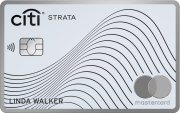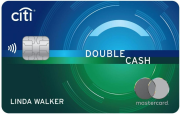The content on this page is accurate as of the posting date; however, some of the offers mentioned may have expired.
When I came of age to apply for my first standard US based credit card, I read heaps of literature on how to best use a credit card and how to protect my credit consumer rights. I got educated about credit unions, credit bureaus and a great number of acts regulating their activities.
Right from the start I was convinced that credit card institutions with all their regulating systems help people establish credit history and build a good financial background. What bitter truth did I learn when I mischanced to get into serious trouble with my credit cad information leakage.
Well, I made credit card application with Discover credit card company that stands with other biggest credit card providers effectively fighting against ID theft and credit card fraud. I sincerely believed that should any suspicious purchase turn up, they would send me a fraud alert or at least ask me to verify the purchase. But, they did a bad turn...
The slighting treatment that I faced prompted me to think that layout was of some benefit to my credit card issuer. What do I mean? As a prudent and responsible credit card holder, you must know the acts and companies involved in protecting your consumer rights and privacy data.
In connection with this, I'll mention the Fair Credit and Reporting Act and the Federal Trade Commission concerned with regulating the fraud alert system and watching its implementation on the part of banks and credit bureaus.
Now, whose fault is it that the system fails to operate and allows fraudulent credit card transactions to pass through? Is it really a bitter mistake or a smart plan of banks to charge innocent credit cardholder purchases they didn't really make?
Anyway, my case showed that the fraud alert system empowered by the Fair Credit and Reporting Act didn't work in the proper way and only after a number of fraudulent transactions did I receive a phone call from my creditor asking for the verification.
Well, what's their gain in it? Maybe, if I hadn't managed to prove that I didn't make all those payments, I would have been forced to repay with interest. Some people cannot prove innocence or find this process too exhausting and painful - so they pay. Others that can't pay fall behind and are captured in a credit card debt prison.
That's how I personally explain the policy of some banks that do not get in touch with you when a questionable transaction has been made. You cannot imagine how many wanting customers fall upon attractive and profitably-looking credit card applications and don't know when they can turn their path to financial crash or identity loss.
Maybe, it's not really done on purpose and the alert system is apt to errors but I think it's the first concern of the credit security executives and the whole credit card industry to provide for better protection.
Let's give it a thought. If someone has access to your credit card account, he has definitely stolen your credit card number. In its turn, credit card number serves a as an ID tool. You've lost your unique credit number - you've lost your identity!
And all this happens when banks promise high security level and coordination of fraud alert with credit card bureaus. Either the banks do not report or the bureaus do not fixate....





